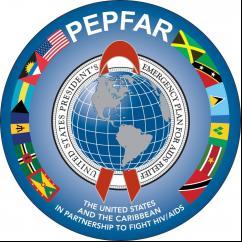
The U.S. President's Emergency Plan for AIDS Relief (PEPFAR) is the U.S. Government initiative to help save the lives of those suffering from HIV/AIDS around the world. This historic commitment is the largest by any nation to combat a single disease internationally, and PEPFAR investments also help alleviate suffering from other diseases across the global health spectrum. PEPFAR is driven by a shared responsibility among donor and partner nations and others to make smart investments to save lives.
PEPFAR is the cornerstone and largest component of the U.S. President’s Global Health Initiative. With a special focus on improving the health of women, newborns and children, the Global Health Initiative’s goal is to save the greatest number of lives by increasing and building upon what works and, then, supporting countries as they work to improve the health of their own people.
On July 30, 2008, H.R. 5501, the Tom Lantos and Henry J. Hyde United States Global Leadership Against HIV/AIDS, Tuberculosis, and Malaria Reauthorization Act of 2008 was signed into law, authorizing up to $48 billion over the next 5 years to combat global HIV/AIDS, tuberculosis, and malaria.
This global epidemic requires a comprehensive, multisectoral approach that expands access to prevention, care and treatment. As PEPFAR works to build upon its successes, it will focus on transitioning from an emergency response to promoting sustainable country programs.
Sustainable programs must be country-owned and country-driven. Given that the AIDS epidemic represents a shared global burden among nations, the next phase of PEPFAR represents an opportunity for the United States to support shared responsibility with partner countries. To seize this opportunity, PEPFAR is supporting countries in taking leadership of the responses to their epidemics. In addition, to support an expanded collective impact at the country level, PEPFAR is increasing collaboration with multilateral organizations.
Sustainable programs must address HIV/AIDS within a broader health and development context. PEPFAR must be responsive to the overall health needs faced by people living with HIV/AIDS (PLWHA), their families, and their communities, linking the HIV response to a diverse array of global health challenges. As a component of the Global Health Initiative, PEPFAR will be carefully and purposefully integrated with other health and development programs.
Integration expands country capacity to address a broader array of health demands and to respond to new and emerging challenges presented by HIV. Strategic coordination furthers the reach of bilateral assistance, leverages the work of multilateral organizations, promotes country ownership, and increases the sustainability of national health programs.
Sustainable programs must build upon our strengths and increase efficiencies. PEPFAR is renewing its emphasis on a "whole of government" response, ensuring that agencies focus on core competencies and better coordination to maximize the effectiveness of U.S. Government (USG) assistance. It is also identifying and implementing efficiencies in its work at both field and headquarters levels to ensure value for money. To build upon the strengths of proven programs, PEPFAR is scaling up effective interventions, particularly in prevention. Finally, it is working to ensure that increased access to coverage is accompanied by an emphasis on quality of services.
PEPFAR's Goals:
Transition from an emergency response to promotion of sustainable country programs.
Strengthen partner government capacity to lead the response to this epidemic and other health demands.
Expand prevention, care, and treatment in both concentrated and generalized epidemics.
Integrate and coordinate HIV/AIDS programs with broader global health and development programs to maximize impact on health systems.
Invest in innovation and operations research to evaluate impact, improve service delivery and maximize outcomes.
Programmatic Strategy:
In this second phase of PEPFAR, a new program strategy is underway that supports the Administration's overall emphasis on improving health outcomes, increasing program sustainability and integration, and strengthening health systems. Some of these changes are already being implemented with planning and programming for FY 2010. Over the next year, PEPFAR will be working closely with country teams in order to translate, prioritize, and implement this strategy in a manner appropriate to the country context. More information on the broader strategic framework for PEPFAR activities can be found in the strategy annexes which will be made available at www.pepfar.gov/about/strategy.
- Login to post comments


Recent comments
9 years 2 weeks ago
9 years 23 weeks ago
9 years 27 weeks ago
9 years 30 weeks ago
9 years 31 weeks ago
11 years 50 weeks ago
12 years 12 weeks ago
12 years 32 weeks ago